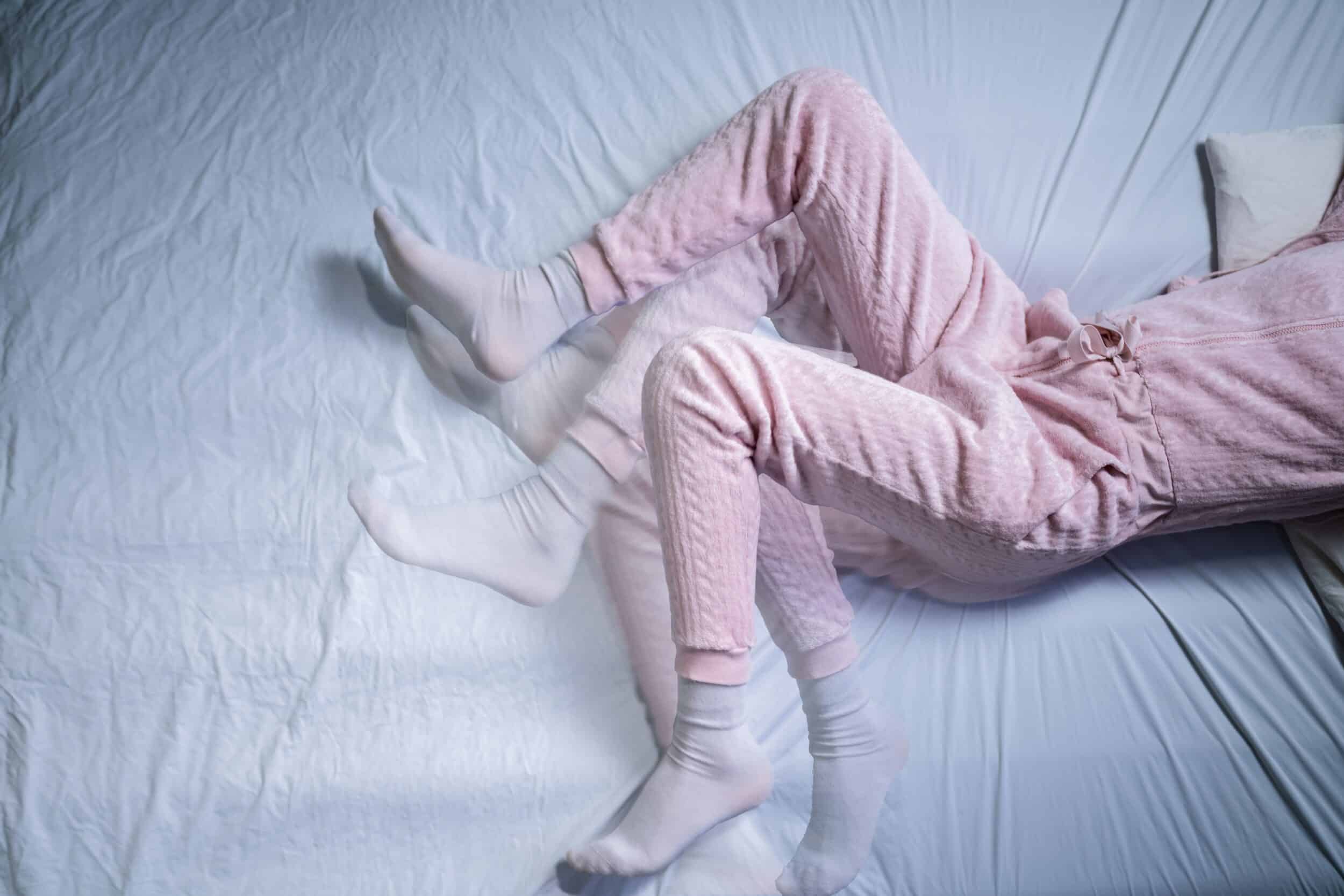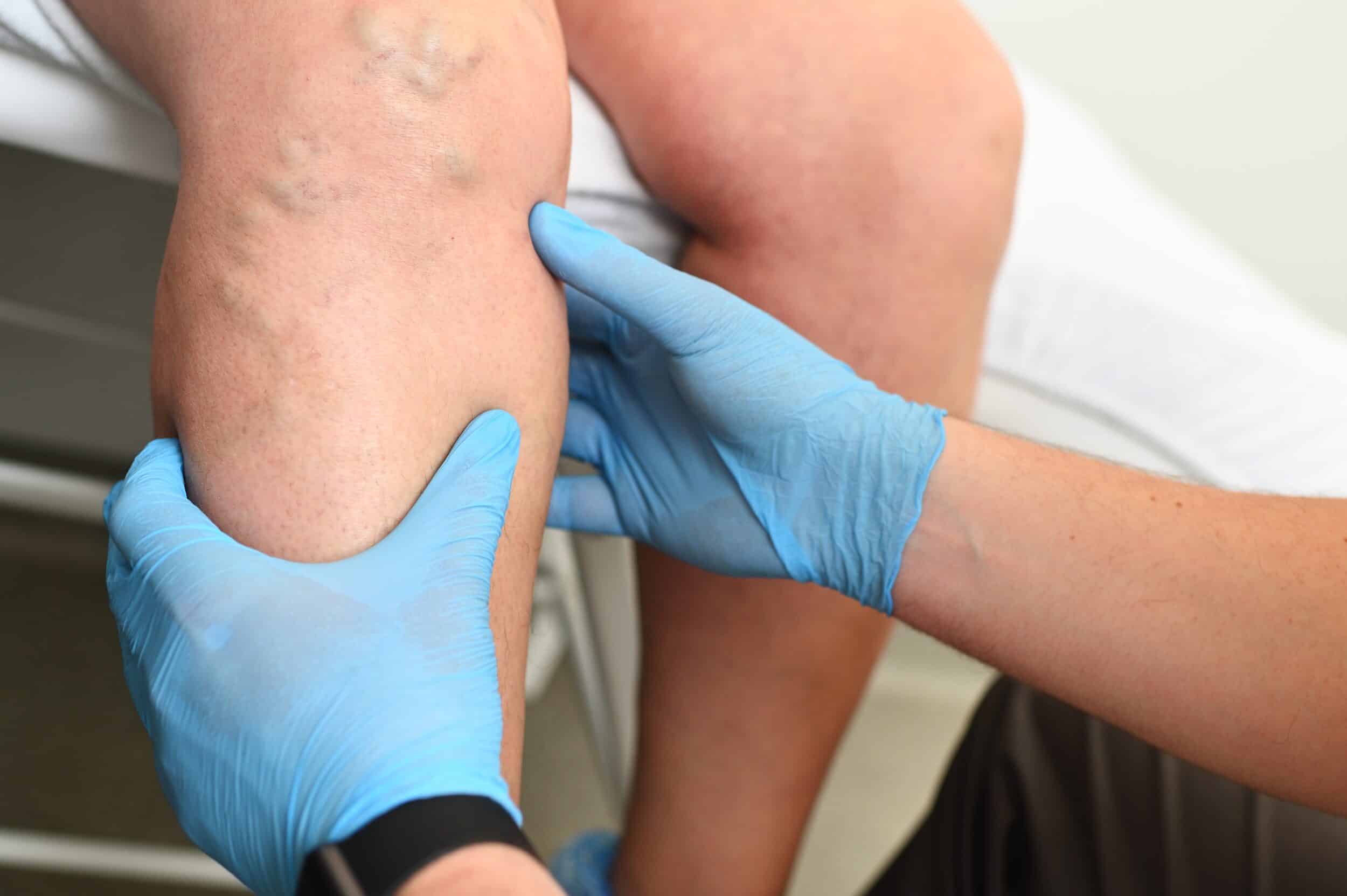Are you kept awake at night with irresistible urges to move your legs; a “creeping” feeling in the legs; persistent movement during sleep; or tingling, burning, aching or numbness of the legs? This is known as restless leg syndrome (RLS) and is thought to affect as much as 15 percent of the general population. The symptoms of RLS are worse at night or during periods of relaxation, such as lying down during the day. They tend to improve with activity. These symptoms disrupt the sleep not only of the RLS sufferer but can disrupt the sleep of their bed partner as well.

RLS and Varicose Veins
Venous insufficiency is an often-overlooked cause of restless leg syndrome (RLS). Several studies indicate that as many as 22% of those with RLS also have venous insufficiency. When restless legs occur with venous insufficiency, the RLS can be improved significantly by treating the varicose veins. A study published in the Journal of Phlebology reported that in patients with both RLS and venous disease, 98 percent had their RLS symptoms relieved with varicose vein treatment, and 80 percent of experienced long-term relief. A simple office evaluation and noninvasive duplex ultrasound of your legs is the first step you should take. If you are diagnosed with underlying venous disease and you have restless legs, there is hope.
Venous Insufficiency and RLS: Understanding the Connection
With venous insufficiency, veins struggle to circulate blood properly. Many patients with RLS linked to vein disease experience worsening symptoms at night, when the heart rate and blood pressure naturally lower as part of the body’s normal sleep cycle. With less overall circulation and while lying down, gravity no longer helps pull blood down your legs. This can cause blood to pool more easily in the legs, increasing pressure and triggering the uncomfortable and restless sensations of RLS.
Treatment Options For RLS
We begin the treatment planning process with a diagnostic ultrasound, which provides Dr. McWilliams with a highly detailed view of your veins and blood flow to determine if you have venous insufficiency. At McWilliams Vein Center, we treat the underlying venous insufficiency that contributes to RLS using innovative, evidence-based vein treatments including:
- Endovenous laser treatment (EVLT) uses laser energy inside the affected vein to gently seal it. This allows blood to move into healthy veins, relieving pressure and improving symptoms.
- Radiofrequency ablation works similarly to EVLT but uses radiofrequency energy to close damaged veins with minimal discomfort and quick recovery.
- Varithena® involves injecting a microfoam that safely closes bigger problem veins. This method is ideal for accessing veins that are twisted or difficult to reach.
- VenaSeal™ uses a medical-grade glue to close the diseased vein. The vein seals instantly, reducing symptoms.
- Ultrasound-guided sclerotherapy uses a medicated foam into smaller problem veins under ultrasound guidance, allowing for precise treatment.
We perform these procedures in our office so you can receive relief and return to your normal activities quickly.
Alternative Treatments For RLS
In some cases, RLS may not stem from vascular problems. For those patients, certain medications can help control nerve signals involved in RLS symptoms. Correcting underlying issues, such as iron deficiency, kidney disease, or thyroid problems, can also improve symptoms. While medications may help manage RLS, addressing venous insufficiency offers a more comprehensive solution when veins are a contributing factor.

Why Choose Us For RLS Treatment
At McWilliams Vein Center, we go far beyond simply managing symptoms—we target the source. Dr. McWilliams, a board-certified specialist in phlebology and family practice, has spent nearly 20 years focusing exclusively on vein care. His expertise includes thousands of minimally invasive vascular procedures, from laser ablation to ultrasound-guided treatments.
Dr. McWilliams is nationally recognized for his high-level expertise and has trained numerous vein specialists currently practicing. Our patients benefit from personalized care, cutting-edge technology, and a warm, welcoming environment where comfort and great results are the top priorities. You can trust us to deliver exceptional care that restores your restful nights and active days.
FAQs
Leg heaviness, aching, swelling, and an urge to move legs at night may signal vein-related RLS.
By improving blood flow and relieving vein pressure, treatments often alleviate restless sensations and enhance sleep quality.
Untreated RLS may worsen over time, disrupting sleep, increasing discomfort, and leading to reduced quality of life.
Yes. Regular exercise, stretching, leg elevation, and reducing caffeine or alcohol intake may help lessen symptoms.
RLS Relief Without Medication in Naperville and Wheaton, IL
If you're looking for a nonsurgical, no-downtime, and medication-free RLS solution, McWilliams Vein Center is here to help. Contact our office at 630-474-3535 to schedule an appointment today.

